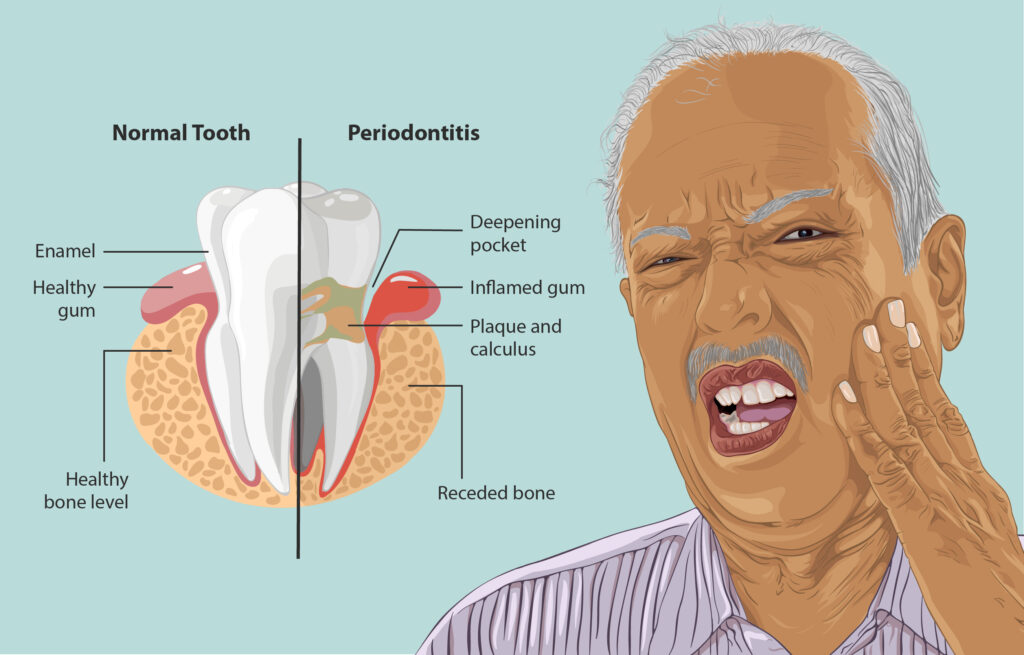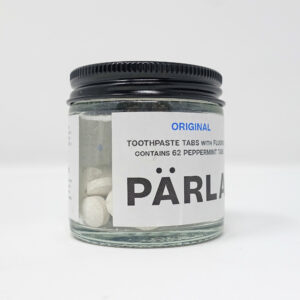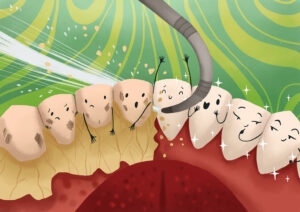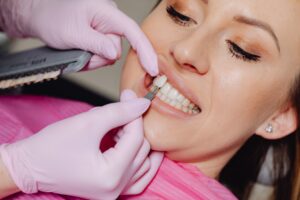Bone loss in teeth is a serious dental problem. If left untreated, it can lead to tooth loss, which can make it difficult to eat and speak. Here’s how you can slow down bone loss in teeth.
Why am I losing bone in my teeth?
The most common cause of bone loss in teeth is periodontal disease (advanced gum disease). Other risk factors include a genetic predisposition, smoking, and health conditions such as arthritis, heart disease, and diabetes.
Is dental bone loss normal with age?
Some wear and tear of the teeth and bones is expected with age. However, it is possible to slow done bone loss in teeth by leading a healthy lifestyle and taking good care of your teeth and bones.
Can teeth with bone loss be saved?
Fortunately, teeth can be saved even in people with advanced bone loss. It requires proper periodontal treatment in a dental office. If the gum disease is severe, you may need to see a periodontist, a specialist who treats conditions of the gums. Some people need advanced regenerative treatments or bone grafts to save their teeth.
How can I slow down bone loss in teeth?
The following steps can help you slow down bone loss in teeth and keep your teeth and bones strong.
- Eat a healthy, balanced diet. Include lots of fresh fruits and vegetables, whole grains, low-fat dairy products, and lean proteins in your diet.
- Avoid sugary snacks and beverages as much as possible. Read some tips on overcoming a sugar addiction.
- Make sure you’re getting 1,000-1,200 mg of calcium every day from food sources. Take dietary supplements, if needed.
- Ensure you’re taking 600-800 IU of vitamin D daily.
- Stay active and maintain a healthy body weight.
- Avoid smoking.
- Limit alcohol intake.
- Take care of your teeth and gums by brushing and flossing regularly.
- Visit your dentist every 6 months so that problems can be diagnosed and treated in a timely manner.
- Talk to your doctor about the risks associated with taking bisphosphonates, a group of drugs used to treat osteoporosis (age-related weakening of the bones). These medications have been linked to osteonecrosis of the jaw (death of bone tissue in the jaw). The risk is higher if you take high doses of these medicines.
Can gum bone grow back?
Unfortunately, gums that are damaged due to periodontitis and have receded cannot grow back.
What is the treatment to slow down bone loss in teeth?
The treatment to slow down bone loss in teeth involves treating the underlying gum disease. This is accomplished with antibiotics to treat any infections. Your dentist will also perform scaling and root planing to remove tartar. If you have advanced periodontitis, your dentist may recommend the following surgical procedures.
- Flap surgery or pocket reduction surgery. This involves making a cut in your gums to fold back the tissue, expose the tooth roots, and more effectively perform scaling and root planing.
- Soft tissue grafting. This is a treatment for gum recession in which a small amount of tissue is transplanted from the root of the mouth or another donor area to the affected site. It helps protect exposed tooth roots.
- Bone grafting. This is done when it’s too late to slow down bone loss in teeth and the bone around the teeth is already destroyed. It involves taking bits of your own bone or artificial bone and grafting it into the affected area. The grafted bone provides support and prevents tooth loss.
- Tissue stimulating proteins. A special gel containing proteins which promote tooth enamel and healthy bone growth is applied to the damaged tooth root.
- Guided tissue regeneration. A special fabric is placed between the tooth and the underlying bone. This prevents unwanted tissue from growing in the area, allowing it to heal properly.
The best thing you can do to slow down bone loss in teeth is take good care of your mouth. If you have not been to the dentist in more than 6 months, pick up the phone and give Express Dentist a call today. We’ll put you in touch with a trusted dental professional in your area so you can get the dental care you need without delay.
About the author
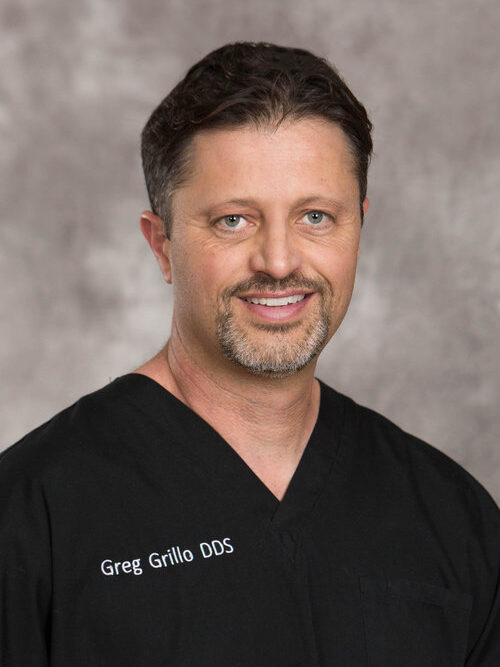
Dr. Greg Grillo
Dr. Greg Grillo DDS studied at the University of Washington where he received a bachelors degree with Honors and later attended dental school on the same campus. Following school Dr. Greg served in the United States Navy as a dental officer. During this time he received advanced training in specialty areas of dentistry while also treating families of members of the military.
As well as sharing valuable information on dentistry and oral health, Dr. Greg remains a practicing dentist to this day. He works with families in the Okanogan Valley where he lives with his wife and three children.
- Dr. Greg Grillo
- Dr. Greg Grillo
- Dr. Greg Grillo
- Dr. Greg Grillo
- Dr. Greg Grillo
- Dr. Greg Grillo
- Dr. Greg Grillo
- Dr. Greg Grillo
- Dr. Greg Grillo
- Dr. Greg Grillo
- Dr. Greg Grillo
- Dr. Greg Grillo
- Dr. Greg Grillo
- Dr. Greg Grillo
- Dr. Greg Grillo
- Dr. Greg Grillo
- Dr. Greg Grillo
- Dr. Greg Grillo
- Dr. Greg Grillo
- Dr. Greg Grillo
- Dr. Greg Grillo
- Dr. Greg Grillo
- Dr. Greg Grillo
- Dr. Greg Grillo
- Dr. Greg Grillo
- Dr. Greg Grillo
- Dr. Greg Grillo
- Dr. Greg Grillo
- Dr. Greg Grillo
- Dr. Greg Grillo
- Dr. Greg Grillo
- Dr. Greg Grillo
- Dr. Greg Grillo
- Dr. Greg Grillo
- Dr. Greg Grillo
- Dr. Greg Grillo
- Dr. Greg Grillo
- Dr. Greg Grillo
- Dr. Greg Grillo
- Dr. Greg Grillo
- Dr. Greg Grillo
- Dr. Greg Grillo
- Dr. Greg Grillo
- Dr. Greg Grillo
- Dr. Greg Grillo
- Dr. Greg Grillo
- Dr. Greg Grillo
- Dr. Greg Grillo
- Dr. Greg Grillo
- Dr. Greg Grillo
- Dr. Greg Grillo
- Dr. Greg Grillo
- Dr. Greg Grillo
- Dr. Greg Grillo
- Dr. Greg Grillo
- Dr. Greg Grillo
- Dr. Greg Grillo
- Dr. Greg Grillo
- Dr. Greg Grillo
- Dr. Greg Grillo
- Dr. Greg Grillo
- Dr. Greg Grillo
- Dr. Greg Grillo
- Dr. Greg Grillo
- Dr. Greg Grillo
- Dr. Greg Grillo
- Dr. Greg Grillo
- Dr. Greg Grillo
- Dr. Greg Grillo
- Dr. Greg Grillo
- Dr. Greg Grillo
- Dr. Greg Grillo
- Dr. Greg Grillo
- Dr. Greg Grillo
- Dr. Greg Grillo
- Dr. Greg Grillo
- Dr. Greg Grillo
- Dr. Greg Grillo
- Dr. Greg Grillo
- Dr. Greg Grillo
- Dr. Greg Grillo
- Dr. Greg Grillo
- Dr. Greg Grillo
- Dr. Greg Grillo
- Dr. Greg Grillo
- Dr. Greg Grillo
- Dr. Greg Grillo
- Dr. Greg Grillo
- Dr. Greg Grillo
- Dr. Greg Grillo
- Dr. Greg Grillo

